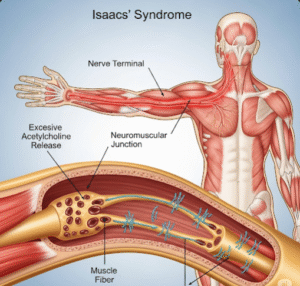Overview
A systemic yeast infection, also known as invasive candidiasis, is a serious fungal infection that spreads beyond the skin and mucous membranes into the bloodstream or internal organs such as the brain, heart, kidneys, and eyes. It is most commonly caused by Candida species, particularly Candida albicans, and can become life-threatening, especially in immunocompromised individuals. Prompt diagnosis and treatment are essential.
What is Systemic Yeast Infection?
Systemic yeast infections occur when Candida, a fungus normally found in small amounts on the skin and in the digestive tract, overgrows and enters the bloodstream or internal tissues. This condition differs from common surface-level infections like oral thrush or vaginal yeast infections because it affects deeper organs and systems. It is also referred to as candidemia when found in the bloodstream.
Symptoms
- Persistent fever that doesn’t improve with antibiotics
- Chills and night sweats
- Fatigue and general malaise
- Low blood pressure (in severe cases)
- Muscle aches or joint pain
- Visual disturbances (if the eye is involved)
- Confusion or disorientation (if the brain is involved)
- Abdominal pain or urinary tract symptoms (organ-specific)
Causes
Systemic yeast infections typically occur when the body’s immune defenses are weakened or when Candida enters the bloodstream via:
- Central venous catheters
- Surgery (especially abdominal)
- Long-term antibiotic use
- Organ transplantation
- Total parenteral nutrition (TPN)
- Intravenous drug use
Risk Factors
- Immunocompromised conditions (e.g., cancer, HIV/AIDS, organ transplant)
- Diabetes mellitus
- ICU stay or hospitalization
- Recent surgery or trauma
- Broad-spectrum antibiotics or corticosteroid therapy
- Use of indwelling medical devices (catheters, ventilators)
- Premature infants or elderly patients
Complications
- Sepsis and septic shock
- Endocarditis (heart infection)
- Meningitis (brain and spinal cord infection)
- Osteomyelitis (bone infection)
- Retinal or ocular damage
- Multi-organ failure
- Death (if untreated or in critical cases)
Prevention
- Judicious use of antibiotics and steroids
- Proper hand hygiene in hospital settings
- Removal of unnecessary medical devices
- Monitoring at-risk patients in ICUs
- Antifungal prophylaxis in high-risk patients
- Good control of blood sugar in diabetic patients
Treatment Options in Korea
Korea provides world-class care for systemic yeast infections through its advanced infectious disease and critical care units.
Diagnosis
- Blood cultures – gold standard for detecting candidemia
- Beta-D-glucan testing – identifies fungal components in blood
- PCR testing – rapid detection of Candida DNA
- Imaging (CT, MRI) – checks for spread to organs
- Echocardiography – if endocarditis is suspected
- Ophthalmologic exam – to detect eye involvement
Treatment Approaches
- Antifungal Medications
- First-line drugs: Echinocandins (e.g., caspofungin, micafungin)
- Alternative options: Fluconazole, amphotericin B (especially in severe cases)
- Duration of treatment typically ranges from 2–6 weeks depending on severity and location
- Removal of Infected Devices
- Central lines or catheters often need to be removed to clear the infection source
- Supportive Care
- ICU management for severe cases
- Organ function support (e.g., dialysis if kidneys are involved)
- Monitoring and Follow-Up
- Repeat blood cultures to confirm infection clearance
- Imaging to monitor resolution of organ involvement













